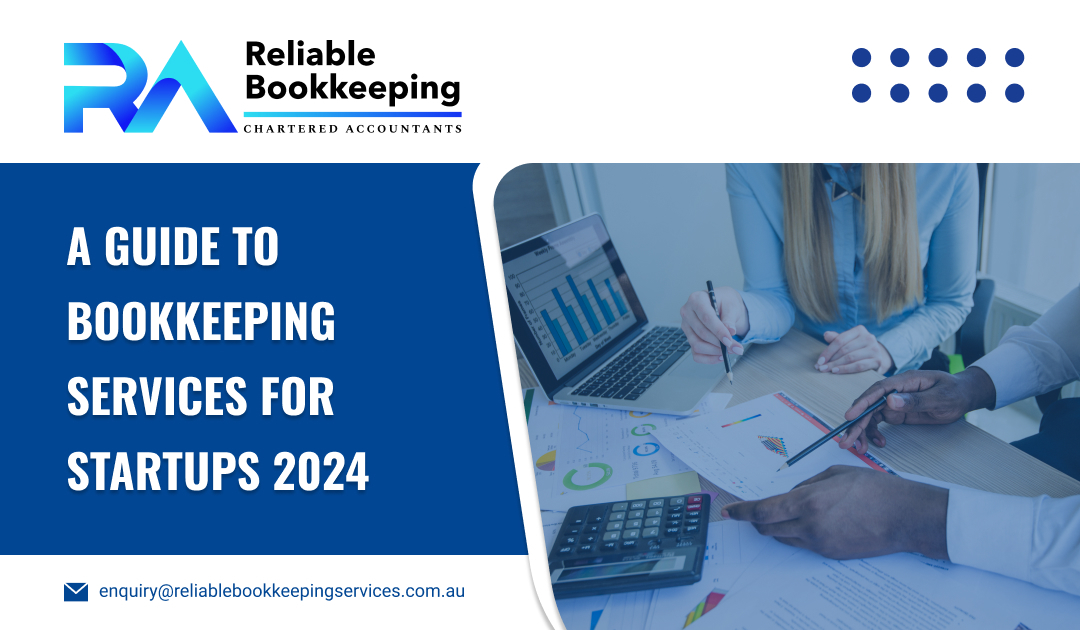As a startup business owner, you have to perform various tasks to achieve success and grow your business. One of the most crucial responsibilities of running a startup is managing business books. Choosing small business bookkeeping services can make all the difference in the success and growth of your startup. From understanding its importance and the difference between a bookkeeper and an accountant in a startup context to handling invoices and budgeting, we’ll explain everything.
Understanding the Importance of Bookkeeping Services for Startups
Accurate and organised financial records act as a foundation for the success of startup businesses, allowing businesses to track cash flow. A professional bookkeeper provides insights into a startup’s financial condition, allowing informed decision-making. Professional bookkeepers can monitor startups’ income, cash flow statements and balance sheets. By managing business books, startup business owners can navigate the intricacies of business taxes.
Difference between a Bookkeeper and an Accountant
While bookkeepers manage day-to-day financial transactions, accountants analyse financial data and offer strategic advice. Bookkeepers ensure accurate management of financial transactions, while accountants interpret financial statements and help with tax planning.
Both roles are crucial for maintaining the stability of business finances in startups. Bookkeepers manage every detail of financial transactions, while small business tax accountants provide financial advice and insights depending on years of experience.
What is Offered in Bookkeeping Services for Startups?
Bookkeepers can perform a variety of tasks to add value to your business. As a business owner, you may not have enough time to look after your business books. Therefore, it would be worthwhile to get help from a professional and experienced bookkeeper.
- Record-keeping
Financial record-keeping is crucial for businesses. These records include bank statements, receipts, bills, invoices, and other financial documents. Financial record-keeping is vital for tax compliance, financial clarity, and making informed business decisions.
- Bank account reconciliation
Preparing bank reconciliation statements is vital for every company. Bank account reconciliation is the process of comparing business book records against bank account records. It is vital to identify discrepancies and errors before they become a major problem. It will ensure avoid missing out on important tax deductions.
- Budgeting and financial planning
Proper budgeting will provide you control over your business finances so you can avoid overspending. It will allow you to plan for the future, assign resources and set financial goals. It can help identify areas where you might be overspending.
- Monitoring business expenses and income
In this day and age, monitoring your business income and expenses is crucial. By tracking business expenses and income, you know where your money is going to and coming from. Accurate monitoring ensures you don’t miss out on tax deductions.
- Accounts payable
It is crucial to decide when and how to make payments, but many business owners overlook its importance and are not able to do it well. They will either pay everything with one go or make late payments. Bookkeepers can ensure you pay bills on time.
- Account receivable
Bookkeepers can keep track of ageing receivables and overdue accounts. Bookkeepers will be responsible for collecting overdue payments from your clients for offered services or products.
- Payroll
Bookkeepers can ensure payroll management for your business by:
- maintaining records of employees
- ensuring their deductions are applied
- calculating salary
- lodging reports to the ATO
- making payments
How do Bookkeeping Services Prepare Startup Businesses for the Future?
Reliable bookkeeping services ensure the future growth of your business by:
- allowing tracking of financial performance
- identifying cost-saving opportunities
- attracting investors
- managing cash flow
- showing credibility
Bookkeeping Software for Startups
Bookkeeping software makes the task of bookkeeping easy. Professional bookkeepers use bookkeeping software to ensure more accuracy in business. The most commonly used bookkeeping software used for startups includes:
- QuickBooks
- Myob
- Xero
Conclusion
Many startup business owners think that they don’t need bookkeeping, which is wrong. Every business must have someone to look after their business books to ensure financial accuracy in business. If you want to have accurate financial records and business finance, you can get our Reliable Bookkeeping Services.

